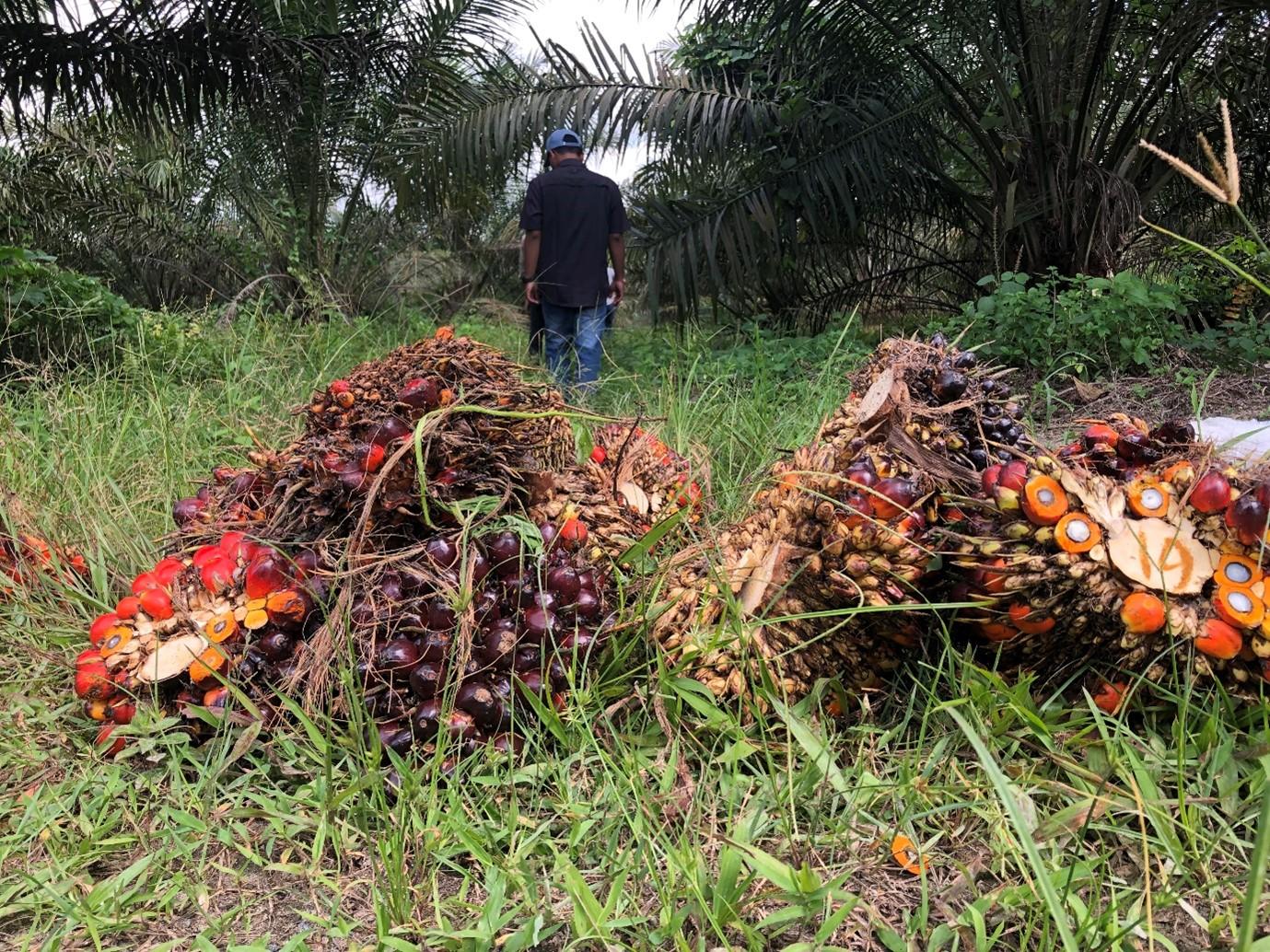
Image: Oil palm fruit bunches (Edgar Turner)
How do alternative understory crop management practices affect the stability of invertebrate communities and ecosystem processes in oil palm plantations?
Supervisor: Prof Edgar Turner
Co-supervisor: Prof David Aldridge
Project summary
Building on ongoing research by the University of Cambridge and partner organisations on this project, this PhD will work with CASE Partner Wild Asia (a Malaysia-based NGO), collaborators based at Universiti Putra Malaysia, and a network of smallholder farmers and larger growers in Peninsular Malaysia to quantify the impacts of alternative oil palm understory management practices (including traditional blanket spraying with herbicides, circular spraying around palms, and livestock grazing) on temporal fluctuations in invertebrate communities and associated ecosystem processes in oil palm. Findings will be used to develop practices for, and increase adoption of, more-sustainable oil palm management.
Oil palm is a globally important crop, and its product, palm oil, is the major source of vegetable oil worldwide. Expansion of oil palm has come at a major cost to biodiversity, but once established oil palm plantations produce several times more oil per hectare than other major vegetable oil crops. Due to this high productivity and global coverage, identifying management options that reduce the negative environmental effects of established oil palm could have important global impacts. Malaysia is the world’s second largest producer. About 40% of national production is provided by smallholders, which often manage their farms differently from large-scale corporations, e.g., by grazing livestock in the oil palm understory. This study will focus on the impacts of alternative understory management options (intensive herbicide-spraying versus less-intensive understory management options) on the stability of communities and associated ecosystem processes in oil palm. This could represent an important aspect of oil palm management, as processes supported by biodiversity, including pollination, pest control and nutrient cycling, can impact palm oil yield.
References
Reiss-Woolever VJ, Advento AD, Aryawan AAK, Caliman J-P, Foster WA, Naim M, Pujianto, Purnomo D, Snaddon JL, Soeprapto, Suhardi, Tarigan RS, Wahyuningsih R, Rambe TDS, Sudharto Ps, Widodo RS, Luke SH, Turner EC (2023) Understory vegetation supports more abundant and diverse butterfly communities in oil palm plantations. Frontiers in Forests and Global Change, doi: 10.3389/ffgc.2023.1205744
Pashkevich, MD, Spear DM, Advento AD, Caliman J-P, Foster WA, Luke SH, Naim M, Sudharto Ps, Snaddon JL & Turner EC (2022) Spiders in canopy and ground microhabitats are robust to changes in understory vegetation management practices in mature oil palm plantations (Riau, Indonesia). Basic and Applied Ecology 64, 120-133.
Mohamad Ashraf, Raja Zulkifli, Ruzana Sanusi, Kamil A Tohiran, Razak Terhem, Ramle Moslim, Ahmad R Norhisham, Adham Ashton-Butt, Badrul Azhar (2018). Alley-cropping system can boost arthropod biodiversity and ecosystem functions in oil palm plantations. Agriculture, Ecosystems & Environment 260, 19-26.
